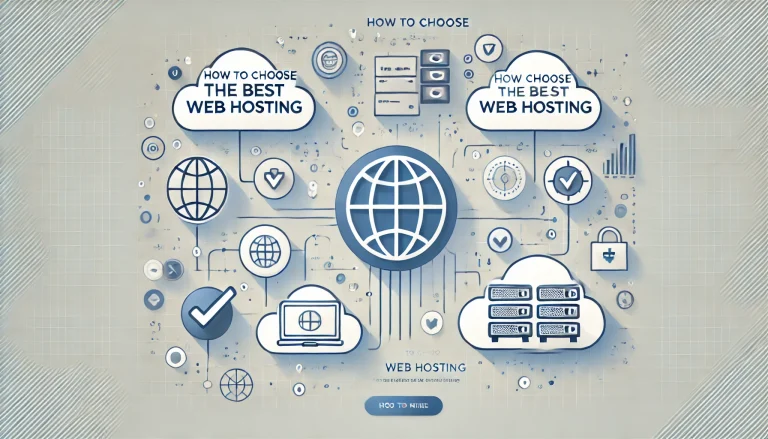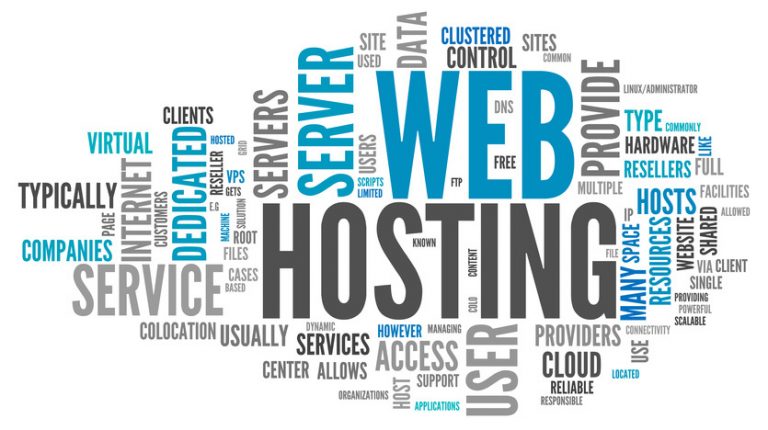Unlock Higher Rankings: Top SEO-Friendly Hosting Solutions Revealed
Web hosting is a fundamental aspect of website management that significantly impacts your site’s SEO performance. While often overlooked, the quality and characteristics of your web hosting can influence your site’s speed, uptime, security, and overall search engine rankings. This article delves into the intricate relationship between web hosting and SEO, providing expert tips on selecting SEO-friendly hosting to boost your site’s visibility.

Introduction
In today’s digital landscape, search engine optimization (SEO) is critical for driving organic traffic to your website. While many factors influence SEO, web hosting is a crucial, yet often underestimated component. The choice of web hosting affects your site’s speed, uptime, security, and overall user experience, all of which are key determinants of search engine rankings. This article explores how web hosting impacts SEO and offers practical tips for selecting SEO-friendly hosting.
Table of Contents
Impact of Web Hosting on SEO
Site Speed and Performance
Website speed is a pivotal factor in SEO. Search engines like Google prioritize fast-loading websites, rewarding them with higher rankings. Slow sites, conversely, can suffer in search results, leading to reduced visibility and traffic. Your web hosting provider plays a crucial role in determining your site’s speed. High-quality hosting services offer optimized servers, fast storage solutions, and efficient resource management, ensuring quick load times. Additionally, factors such as server response time and the use of Content Delivery Networks (CDNs) can further enhance performance, contributing to better SEO outcomes.
Uptime and Downtime
Uptime refers to the amount of time your website is accessible and operational. High uptime percentages are critical for maintaining SEO rankings because search engines prioritize sites that are consistently available. Frequent downtime not only frustrates users but also leads to crawling issues and potential drops in search rankings. Reliable web hosting providers guarantee at least 99.9% uptime, using robust infrastructure and redundancy measures to minimize downtime. This stability ensures that your website remains accessible to both users and search engine bots, maintaining its SEO performance.
Server Location and IP Address
The physical location of your server can impact your site’s loading speed for users in different geographical regions. A server located closer to your target audience ensures faster load times, improving user experience and SEO. Additionally, having a dedicated IP address can enhance your site’s security and trustworthiness, which are factors that search engines consider when ranking websites. When choosing a web hosting provider, consider the proximity of their data centers to your primary audience and whether they offer dedicated IP options.
Security Features
Website security is paramount for protecting your site from cyber threats and ensuring data integrity. Search engines like Google prioritize secure sites, indicated by HTTPS, in their rankings. SSL certificates, regular security audits, firewalls, and malware protection are essential features that a good web hosting provider should offer. Secure hosting environments prevent data breaches and hacking attempts, maintaining your site’s reputation and SEO performance. Moreover, search engines penalize sites with security vulnerabilities, making it crucial to choose a hosting provider with robust security measures.
Scalability and Flexibility
As your website grows, so do its resource needs. Scalable hosting solutions allow you to upgrade your resources seamlessly, accommodating increased traffic and content without compromising performance. Flexible hosting plans that offer easy scalability ensure your site remains fast and responsive, even as demands increase. This adaptability is crucial for maintaining good SEO performance, as it prevents slowdowns and downtime during traffic spikes, ensuring a consistent user experience.
Technical Support
Effective technical support from your hosting provider is invaluable for maintaining your website’s performance and addressing any issues promptly. Reliable support teams can assist with server configurations, troubleshoot problems, and provide guidance on optimizing your site for speed and security. Quality support ensures minimal downtime and quick resolutions to technical challenges, which is vital for maintaining your site’s SEO health. When choosing a hosting provider, consider their support options, response times, and availability to ensure you have the necessary assistance when needed.
Choosing SEO-Friendly Hosting
Identifying Reliable Hosting Providers
The first step in choosing SEO-friendly hosting is identifying reputable hosting providers. Look for companies with a strong track record, positive reviews, and a commitment to performance and security. Researching and comparing different hosting providers based on their features, pricing, and customer feedback can help you make an informed decision. Reliable providers often offer transparent service level agreements (SLAs) and guarantee high uptime percentages, ensuring your site remains accessible and fast.
Understanding Hosting Types
Shared Hosting vs. Dedicated Hosting
Shared hosting involves multiple websites sharing the same server resources, which can lead to slower performance and increased security risks. Dedicated hosting, on the other hand, provides a server exclusively for your site, offering superior performance, security, and control. While shared hosting is more affordable, dedicated hosting is a better choice for SEO due to its enhanced speed and reliability. Assess your site’s needs and budget to determine the best hosting type for your SEO goals.
VPS Hosting
Virtual Private Server (VPS) hosting offers a middle ground between shared and dedicated hosting. It provides dedicated resources within a shared environment, offering better performance and security than shared hosting. VPS hosting is scalable and allows for greater customization, making it a suitable option for sites with growing traffic and resource needs. The improved speed and stability of VPS hosting contribute positively to SEO, providing a balance of cost and performance.
Cloud Hosting
Cloud hosting utilizes multiple servers to distribute resources and ensure high availability. This type of hosting is highly scalable and reliable, making it ideal for sites with fluctuating traffic. Cloud hosting’s redundancy and failover capabilities ensure minimal downtime and consistent performance, both of which are beneficial for SEO. The flexibility and resilience of cloud hosting make it a popular choice for businesses looking to optimize their site’s performance and maintain strong SEO rankings.
Managed WordPress Hosting
Managed WordPress hosting is designed specifically for WordPress sites, offering optimized servers, automatic updates, and enhanced security. This type of hosting ensures fast load times and minimal downtime, contributing to better SEO performance. Managed hosting providers handle technical aspects like backups and security, allowing you to focus on content and growth. For WordPress users, managed hosting is an excellent option for maintaining a high-performing, SEO-friendly website.
Key Features of SEO-Friendly Hosting
Speed Optimization
SEO-friendly hosting prioritizes speed optimization, utilizing advanced caching mechanisms, fast storage solutions like SSDs, and efficient resource management. Hosting providers that offer built-in speed enhancements help ensure your site loads quickly, improving user experience and search engine rankings. Look for providers that emphasize speed as a core feature, offering tools and configurations designed to maximize your site’s performance.
Server Response Time
Server response time, or Time to First Byte (TTFB), measures how quickly your server responds to a request. Fast server response times are critical for SEO, as they contribute to overall site speed. Hosting providers with optimized servers and efficient configurations can significantly reduce TTFB, enhancing your site’s performance. Evaluate potential hosting providers based on their server response time metrics to ensure they meet SEO standards.
SSL Certificates
SSL (Secure Sockets Layer) certificates encrypt data transmitted between your site and its users, enhancing security and trust. Search engines favor sites with SSL certificates, often ranking them higher in search results. Many hosting providers offer free SSL certificates as part of their packages, making it easy to secure your site and boost its SEO performance. Ensure your chosen hosting provider includes SSL certificates and supports HTTPS for improved security and rankings.
Data Backup Solutions
Regular data backups are essential for protecting your site’s content and minimizing downtime in case of data loss or corruption. SEO-friendly hosting providers offer automated backup solutions, ensuring your data is securely stored and easily recoverable. Reliable backup systems contribute to your site’s stability and resilience, supporting its SEO performance by preventing data loss and ensuring quick recovery from issues.
Content Delivery Networks (CDNs)
CDNs distribute your site’s content across multiple servers worldwide, ensuring fast load times for users regardless of their location. Utilizing a CDN can significantly improve your site’s speed and performance, which are critical for SEO. Many hosting providers offer integrated CDN solutions, making it easy to enhance your site’s global reach and loading times. Consider hosting providers that include CDN services or support third-party CDN integration for optimal performance.
Database Optimization
Efficient database management is crucial for maintaining a fast and responsive website. SEO-friendly hosting providers offer database optimization tools and configurations that reduce load times and improve overall site performance. Regular database maintenance and optimization ensure your site remains fast, contributing positively to its SEO. Look for hosting providers that offer robust database management solutions to keep your site running smoothly.
Storage and Bandwidth Limits
Adequate storage and bandwidth are necessary for handling your site’s content and traffic. Hosting providers with generous storage and bandwidth limits ensure your site can accommodate growth without performance degradation. SEO-friendly hosting plans offer scalable storage and bandwidth options, allowing you to expand your resources as needed. Evaluate your site’s current and future needs to choose a hosting plan that provides sufficient resources for optimal performance.
Green Hosting
Environmentally friendly hosting, or Green Hosting, uses renewable energy sources to power servers, reducing carbon footprint. Choosing a green hosting provider not only supports environmental sustainability but also enhances your site’s reputation. Some search engines and users prioritize eco-friendly websites, which can positively impact your SEO. Look for hosting providers that are committed to sustainability and offer green hosting options as part of their services.
Additional Tips for SEO-Friendly Hosting
Regular Monitoring and Maintenance
Ongoing monitoring and maintenance are essential for maintaining your site’s performance and security. Regularly check your site’s speed, uptime, and security settings to ensure they meet SEO standards. Many hosting providers offer monitoring tools and services that alert you to issues and provide recommendations for improvement. Proactive maintenance helps prevent problems and ensures your site remains optimized for search engines.
Choosing the Right Data Center Location
The location of your hosting provider’s data centers can impact your site’s speed and SEO. Choose a provider with data centers close to your target audience to reduce latency and improve load times. Some hosting providers offer multiple data center locations, allowing you to select the most strategic option for your audience. Evaluating the geographical distribution of data centers can help you optimize your site’s performance for better SEO.
Evaluating Customer Support
Quality customer support is crucial for resolving technical issues and maintaining your site’s performance. Choose a hosting provider with responsive and knowledgeable support teams available 24/7. Read reviews and testimonials to gauge the quality of customer support, and consider providers that offer multiple support channels, such as live chat, phone, and email. Reliable support ensures you have the assistance needed to address any challenges and maintain your site’s SEO health.
Reading Reviews and Testimonials
Before choosing a hosting provider, read reviews and testimonials from other users to assess their experiences. Look for feedback on performance, uptime, security, and customer support to get a comprehensive understanding of the provider’s strengths and weaknesses. User reviews can provide valuable insights into the reliability and quality of a hosting service, helping you make an informed decision for your SEO needs.
Considering Price and Value
While cost is an important factor, it should not be the sole determinant in choosing a hosting provider. Evaluate the overall value offered by a hosting plan, considering features like speed optimization, security, support, and scalability. Investing in high-quality hosting can yield long-term benefits for your site’s performance and SEO, making it a worthwhile investment. Balance cost with the features and benefits provided to choose a hosting plan that offers the best value for your SEO goals.
Common FAQs
What is the best hosting type for SEO?
The best hosting type for SEO depends on your specific needs and budget. Dedicated hosting and VPS hosting offer superior performance, security, and control, making them ideal for SEO. Managed WordPress hosting is also a good option for WordPress sites, providing optimized servers and specialized support.
How does server location affect SEO?
Server location impacts your site’s loading speed for users in different regions. Choosing a server located close to your target audience reduces latency and improves load times, enhancing user experience and SEO performance.
Is SSL certification important for SEO?
Yes, SSL certification is important for SEO. It encrypts data, enhancing security and trustworthiness. Search engines prioritize sites with SSL certificates, often ranking them higher in search results.
Can hosting affect my website’s load speed?
Yes, hosting significantly affects your website’s load speed. High-quality hosting providers offer optimized servers and fast storage solutions, ensuring quick load times and improved SEO performance.
How do I know if my hosting is secure?
Secure hosting providers offer features like SSL certificates, firewalls, regular security audits, and malware protection. Research hosting providers’ security measures and read user reviews to assess their reliability and commitment to security.
What is the difference between shared and dedicated hosting for SEO?
Shared hosting involves multiple websites sharing the same server resources, leading to slower performance and increased security risks. Dedicated hosting provides a server exclusively for your site, offering superior speed, security, and control, making it more SEO-friendly.
Conclusion
The impact of web hosting on SEO is profound, influencing factors like site speed, uptime, security, and overall performance. Choosing SEO-friendly hosting involves evaluating hosting types, key features, and additional factors like customer support and data center locations. By selecting a reliable hosting provider with a commitment to speed, security, and scalability, you can enhance your site’s SEO performance and achieve better search engine rankings. Invest in quality hosting to ensure your website remains fast, secure, and accessible, providing a positive user experience that search engines reward.






